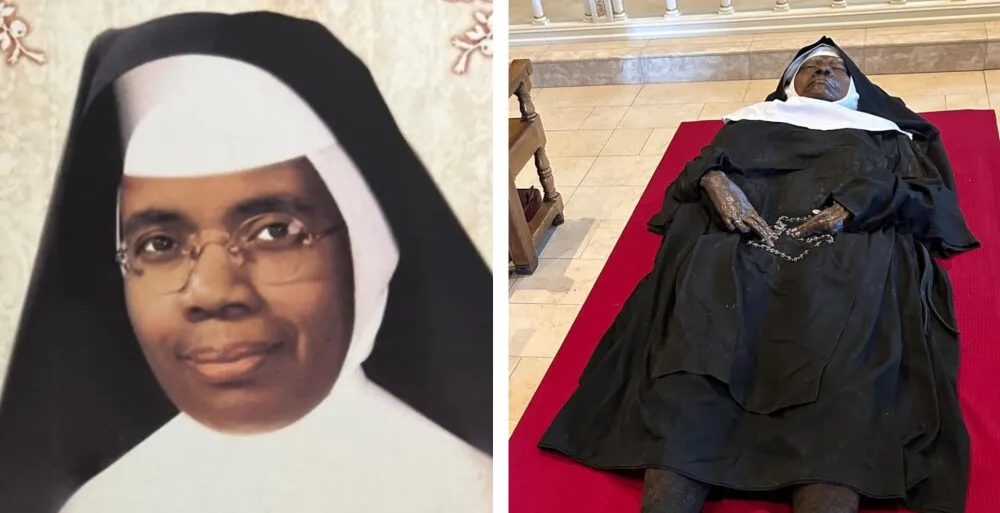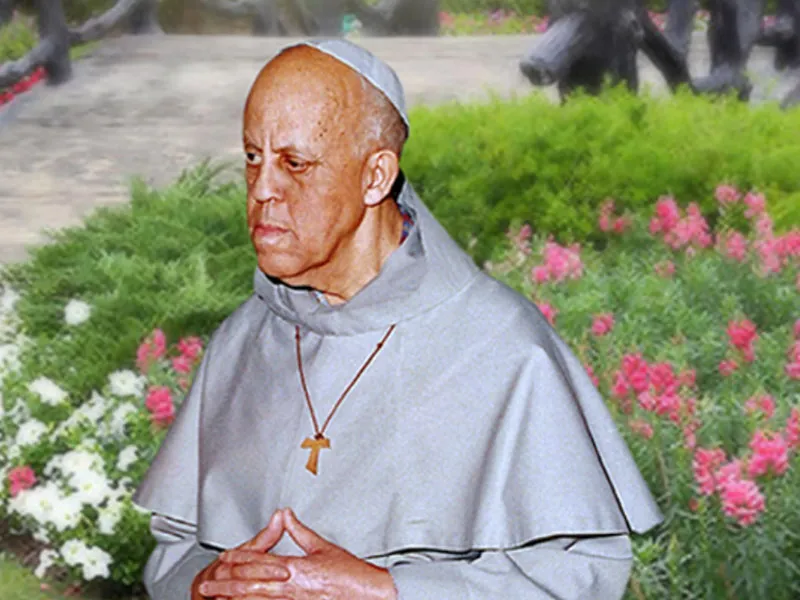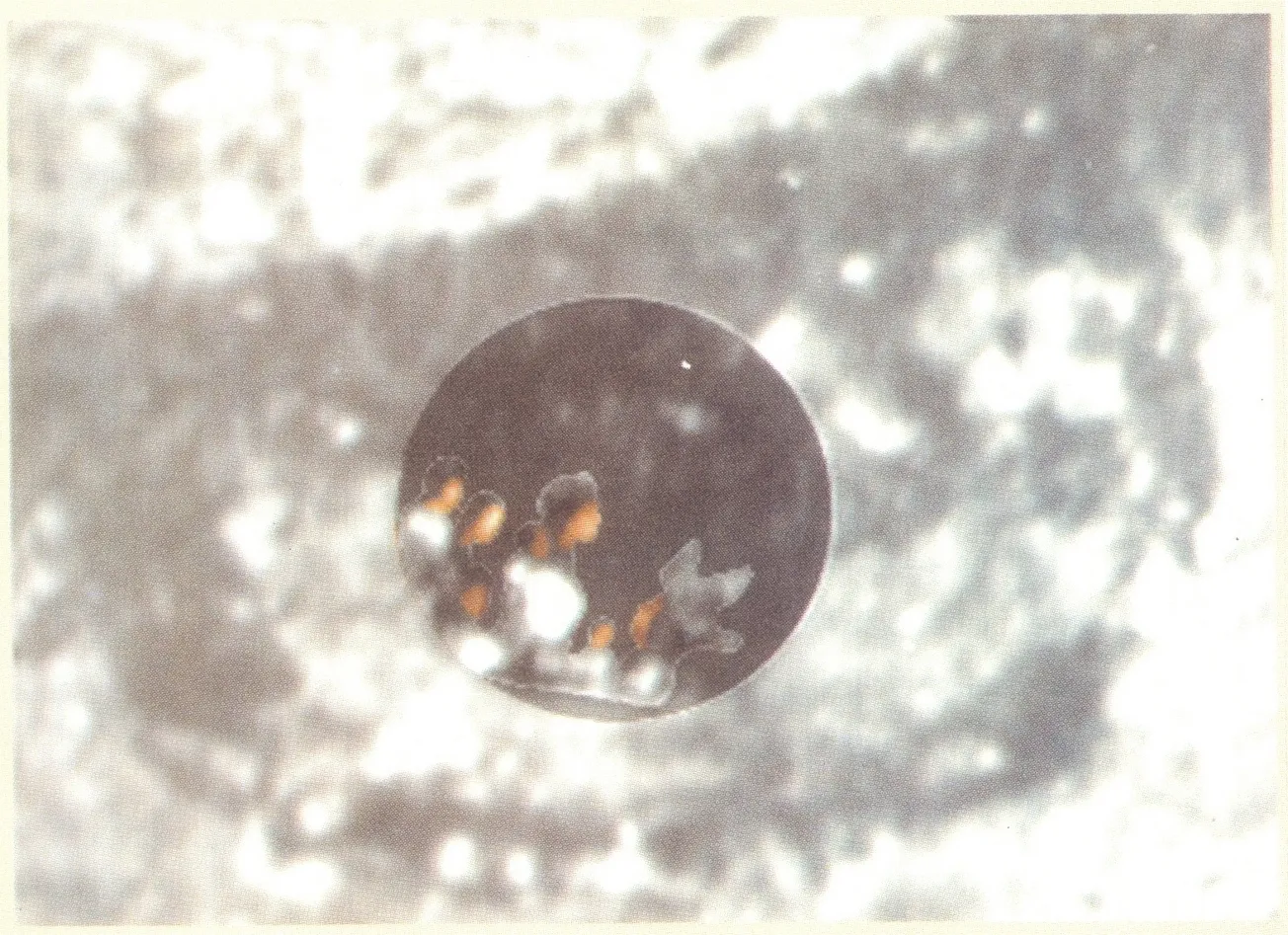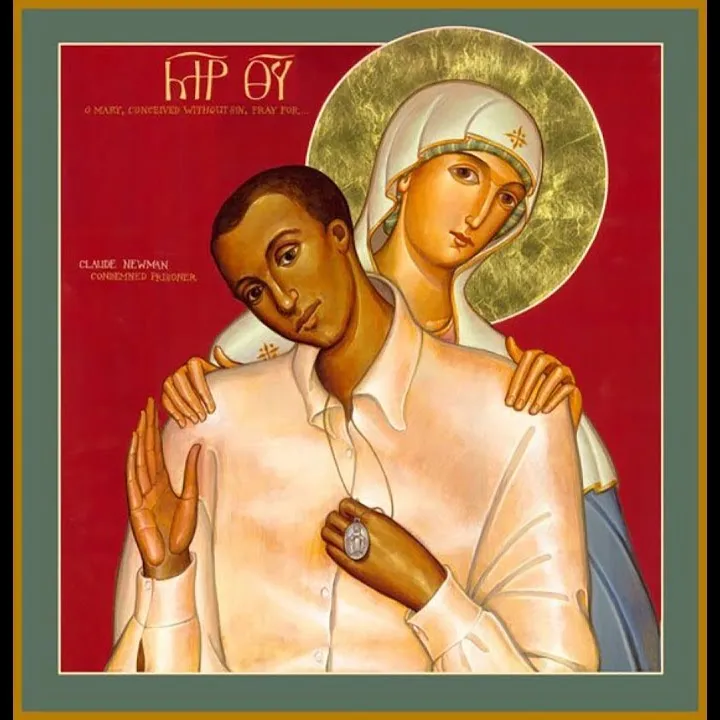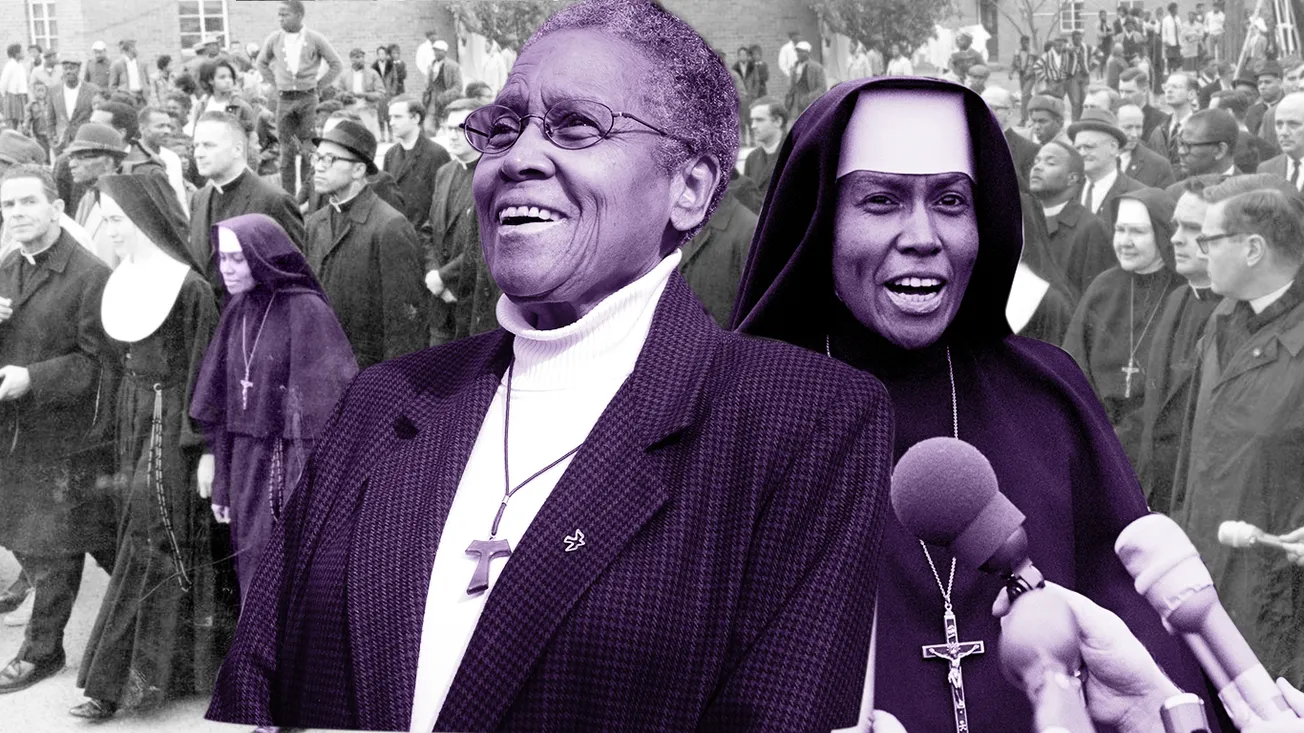The possibly incorrupt body of an African-American nun and foundress has become the draw of hundreds of pilgrims in recent weeks, sparking rumors of a possible sainthood cause for the Missouri-born traditionalist Catholic.
Mother Mary Wilhelmina Lancaster, who died in 2019, was exhumed this spring by her Benedictine Sisters of Mary, Queen of the Apostles, a group known in recent years for their best-selling chant albums. Lancaster founded the convent in Pennsylvania after leaving the Oblate Sisters of Providence, a Black Catholic order based in Baltimore. Originally founded in Scranton, Pennsylvania, in 1995, the Benedictine convent is now located in rural Gower, Missouri.
Lancaster’s body was being moved into the monastery chapel near the feast of the Ascension (near the date of her death) when the sisters discovered that it was in impeccable condition, though under a layer of mold due to condensation, according to Catholic News Agency.
Rumors of an incorrupt body—a condition of supernatural preservation typically associated with canonized saints—began to spread in the surrounding region, and an accompanying social media furor quickly drew hundreds to the convent to pray before her remains. As it is, Lancaster has no open cause for canonization, and although striking photos have circulated from various sources, the Benedictine sisters have acknowledged that, for safety purposes following the exhumation, they covered Lancaster’s face and hands with brown wax molds.
Many Eastern and Western Christians have historically regarded the lack of long-term decay with a dead body as a divine marker of sanctity. Catholic canon law currently contains various prescriptions for the investigation of such incorruptibility. As such, the Diocese of Kansas City-St. Joseph has acknowledged the phenomenon with Lancaster and said it is looking into the matter.
“The condition of the remains of Sister Wilhelmina Lancaster has understandably generated widespread interest and raised important questions. At the same time, it is important to protect the integrity of the mortal remains of Sister Wilhelmina to allow for a thorough investigation,” reads a statement from the chancery released on May 22.
“I invite all the Faithful to continue praying during this time of investigation for God’s will in the lives of the Benedictines of Mary, Queen of Apostles; for all women religious; and all the baptized in our common vocation to holiness, with hope and trust in the Lord.”
Statement regarding Sister Wilhelmina Lancaster https://t.co/YKJOyUSxhu via @bpjamesjohnston
— MementoVeritas (@MementoVerita5) May 24, 2023
Born Mary Elizabeth Lancaster in 1924, Mother Mary Wilhelmina of the Most Holy Rosary (as she was known in religion) was raised in St. Louis, Missouri, amid Jim Crow and the early boom of African Americans joining the Catholic Church following the Great Migration. Her pastor was the famed racial justice activist Fr William Markoe, SJ, and from a young age she desired to enter religious life.
Faced with few options, given that African Americans were banned from most religious orders, she was encouraged to join the Oblates, one of several all-Black convents active at the time. She joined in 1941 and would remain with the community for more than 50 years, serving as an educator, historian, and musician.
Following the Second Vatican Council and the resulting changes in many orders (including her own), Lancaster began to feel a call to a more contemplative spiritual life, and to a different religious community. Allying with the Priestly Fraternity of St. Peter—an orthodox offshoot of the schismatic Society of Saint Pius X—Lancaster moved to Pennsylvania and commenced an interracial community dedicated to the Rule of St. Benedict, and to the pre-Vatican II rubrics of the Divine Office and the Mass.
Invited to the Diocese of KSCJ in 2005, her Benedictine sisters have since resided at the Abbey of Our Lady of Ephesus in Gower, where they took on their current name. The convent was raised to abbey status shortly before Lancaster’s death, with her successor becoming the first Benedictine abbess in the United States to receive the abbatial blessing according to the traditional rite.

In 2021, Catholic News Service noted that the sisters have found success in recruiting young women to their eminently musical order, which has recorded a dozen albums as the Benedictines of Mary, Queen of Apostles—four of which topped the Billboard Classical charts. In 2013, while Lancaster was still alive, the sisters won Billboard’s Classical Artist of the Year award. In 2013, their “Angels and Saints at Ephesus” LP entered the Billboard 200 chart at #127, later reaching sales of 50,000 within two years.
The sisters are currently constructing a new $20 million convent four hours south of Gower, the Monastery of Saint Joseph in Ava, Missouri, in the Diocese of Springfield-Cape Girardeau. The original community will continue, while some members will move to the new location. The two convents collaborated on the order’s latest album, “Christ the King at Ephesus,” which includes a track (“Hymn to Christ the King”) based on a poem written by Lancaster.
According to the sisters, Lancaster’s body will remain on display in Gower through May 29, the date of her death, before being encased in glass and placed in the convent chapel. Though an investigation is not yet complete, the current leader in Gower, Mother Abbess Cecilia, believes the condition of Lancaster’s body is indeed miraculous.
“We think she is the first African American woman to be found incorrupt,” she told CNA.
“There was just this sense that the Lord was doing this. Right now we need hope. We need it. Our Lord knows that. And she was such a testament to hope. And faith. And trust.”

Nate Tinner-Williams is co-founder and editor of Black Catholic Messenger.


